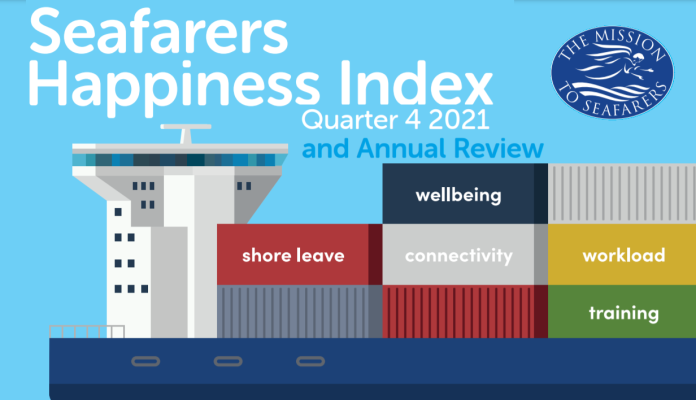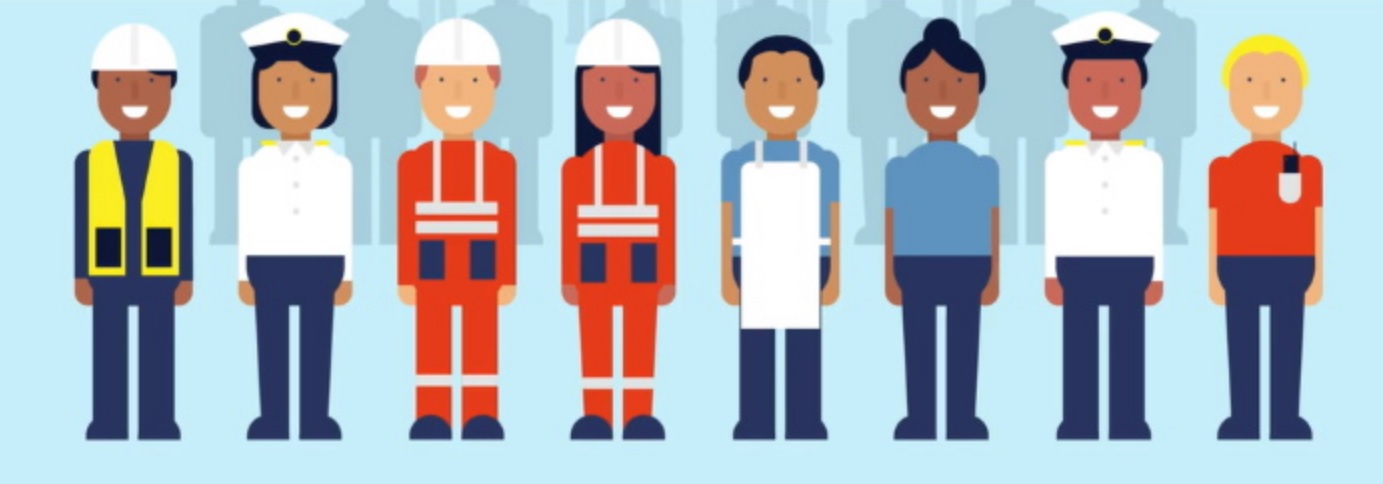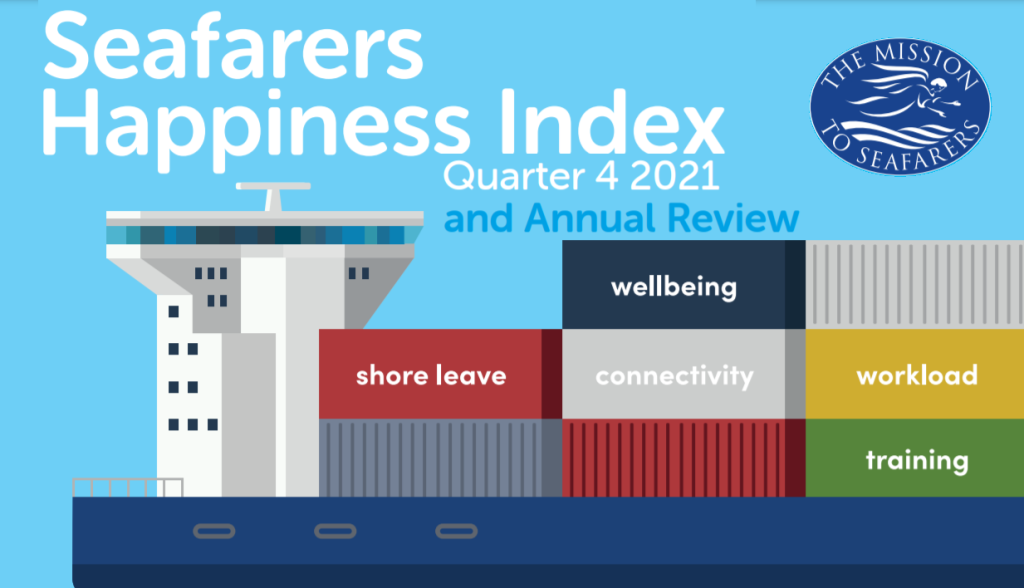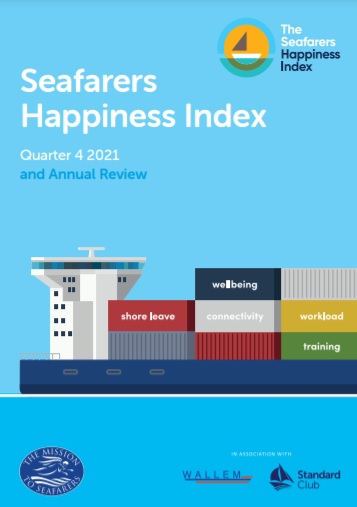
(www.MaritimeCyprus.com) The Seafarers Happiness Index was founded in 2015 and is designed to monitor and benchmark seafarer satisfaction levels by asking 10 key questions and serves as an important barometer of seafarer satisfaction with life at sea. Questions focus on a range of issues, from mental health and wellbeing to working life and family contact.
This latest report highlights not only the findings of the Q4 2021 data but serves to review the annual feedback through 2021. Throughout the year we heard from crews all over the world, and we are grateful to every single one of them. Not simply for assisting us with the survey, but for their efforts in keeping trade flowing in these most difficult circumstances. Again, it is clear that they do so with professionalism, care and resolve. However, as we have seen in many reports before, there are clear frustrations and challenges being faced.
We are also hearing even louder calls for seafarers to be recognized as key or essential workers. These calls cannot and should not be ignored, and without an adequate response, it seems likely that many may be seeking to leave their seagoing careers.

For Q4 2021
We are hugely grateful, as ever, to the many seafarers who took the time to share their experiences with us. This generated vital data and written submissions which allows us to report back to the industry. In addition, through the Mission to Seafarers network of seafarer centres and social channels we also had a range of online interactions with thousands of seafarers, and were able to harness their thoughts.
Crews from across the world took time to share their views, feelings, experiences, and comments about life at sea, providing incredibly powerful and important insight into key issues for seafarers today. The overall average was 6.41 down from 6.59 in the previous quarter.
There were some rises in areas such as shore leave, connectivity, training and food. However, these were very small increases, and overall the trend was far less positive. The impact of the latest Omicron COVID variant and the rush to close borders hit seafarers especially hard in the final month of 2021. This was especially unfortunate given the timing around the Christmas and New Year holiday period.
It appears that the yo-yo nature of COVID is having a serious impact on mental health and is driving negative sentiment on board. Seafarers raised concerns about the draconian nature of repeated testing and expressed concerns about the quality of quarantine provision.
There has been a growing sense that COVID has moved the issue of internet connectivity forward, and there are signs of progress. When it comes to shore leave, however, it was noted that seafarers do not expect to get ashore, and the pandemic has changed the dynamic further. There are signs of growing tension, as vaccinated seafarers feel that they should be able to get ashore.

On the issue of wages, there was a perception from respondents that shipping’s financial gains were not being adequately shared amongst seafarers.
When it came to food, we heard from some seafarers who felt that not all their needs were being taken into account. Meanwhile, the knock-on effect of more time spent on board means that facilities are coming under more scrutiny and pressure. Unfortunately, it often seems that the chance to exercise and keep healthy is being negatively impacted.
Respondents reported a growing emphasis on training and were very pleased to receive instruction on board or be given access to courses. However, there were also those who felt that the standards are dropping.
It has been a significant part of the COVID yo-yo effect that relationships and interactions on board have become strained as uncertainty and concerns have risen. More tensions were evident towards the closing weeks of 2021.
However, it was not all negative. Those who had positive experiences wrote about the conditions on board and of the actions and activities which seemingly helped to ensure better cohesion.
We received a number of detailed and troubling responses from seafarers regarding watchkeeping and also hours of work and rest. They reported a rise in six on/six off watch patterns, something which is not felt to be sustainable.
There were also a number of comments from engineers who felt that planned maintenance on board was not being done, and some not to the necessary standards. In addition, there were indications of “job creep”, as duties are seemingly passed around.
For even more details, click on the below image to read the latest edition of this report:
Source: Mission to Seafarers














